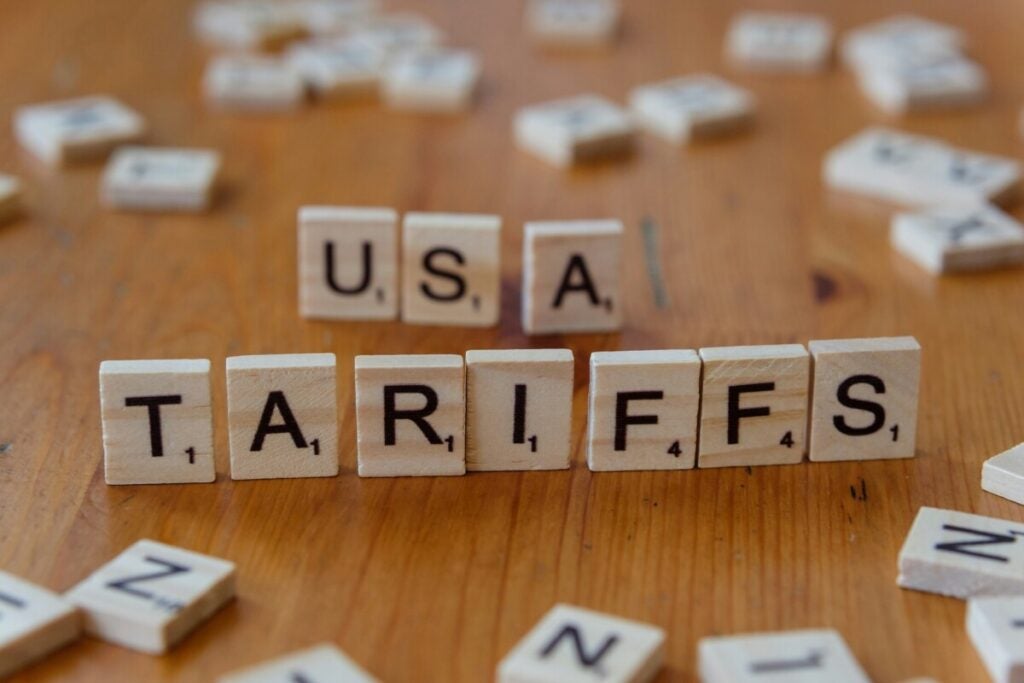
While tariffs on trade are nothing new, they appear to be leading a new wave of unpredictability for policy shifts that are making it more challenging than ever for long-term sustainability in the US jobs market. With more international firms seeking to take advantage of career uncertainty, the United States may face a battle to retain its talent.
Although the 90-day reprieve that President Trump granted for his reciprocal tariffs, along with a later postponement of his escalating trade war with China, has helped to calm nerves, it could lead to added misery in July when the trade levies are expected to resume.
The President is actively negotiating trade deals with many affected nations, but it appears that the age of tariffs is fully upon us, and many industries are coming to terms with the macroeconomic impact of higher import costs and their implications for different industries.
For some of the nation’s brightest talent, tariff uncertainty, coupled with other policy shifts in the age of Trump 2.0, has only helped to strengthen the lure of employment overseas or remote work via employer of record (EOR) services.
Measuring the Impact of Tariffs
Although we’re yet to see tariffs on trade impact the US economy in full force, there are already clear signs of domestic firms battening down the hatches in preparation for industry volatility.
According to Bloomberg estimates, employers added 130,000 jobs in April, falling well below March’s 228,000 listings. While these figures are still a little higher than the 114,000 average throughout January and February, they point to a higher level of uncertainty among firms that would otherwise be looking to recruit new talent.
Worryingly, a survey from payroll processor ADP suggested that there were just 62,000 private-sector job gains in April, pointing to tariffs dampening job growth domestically.
Other policy issues have also impacted the ability of US firms to hire talented international graduates.
Because the US tech sector is dependent on international graduates on OPT and STEM visas, we’re seeing more firms struggle with new compliance challenges, onboarding delays, and DHS rejections at higher levels than ever before.
One Fortune 500 company reportedly lost 22 hires in the last quarter due to visa issues after offer letters were signed.
With artificial intelligence developments transforming traditional job roles in the United States at scale, more businesses appear to be waiting to assess the full extent of Trump’s reciprocal tariffs and their implications for supply chains and scaling strategies before going ahead with their growth plans.
However, it’s also worth noting that financial markets in the United States responded overwhelmingly positively to a climbdown from reciprocal tariffs in recent weeks, and particularly to a de-escalation on the trade war with China.
This has helped domestic businesses to recapture some lost optimism about the future of cross-border trade and to revisit hiring plans throughout sectors like financial analysis, investment strategy, and tech development. Signs suggest that talent acquisition for cybersecurity and data analytics could also flourish in a lower tariff environment.
The Lure of Overseas Stability
We’re also seeing evidence of tariff uncertainty triggering a shift in where and how innovation occurs. Geopolitical barriers to collaborations between universities and research institutions, particularly those involving the US and China, are adversely affecting the flow of ideas and expertise across borders.
These restrictions could create parallel research paths and the duplication of efforts as talent hubs diversify beyond US borders.
Should talent continue to explore opportunities beyond destinations like the United States, it could lead to more domestic employees taking on opportunities elsewhere, creating distributed centers of excellence rather than dominant hubs in leading locations.
We’re already seeing signs of this effect taking shape, with more US employees looking overseas for employment opportunities.
In the first quarter of 2025, United States workers made up 8.5% of the total foreigners interested in UK jobs, representing a significant increase of 2.4% over the same period one year ago. This makes the US the fastest-growing job group interested in UK employment.
With more than 4,000 scientists from US research institutions like the Centers for Disease Control (CDC), the National Institutes of Health (NIH), the National Oceanic and Atmospheric Administration (NOAA), and the National Institute of Standards and Technology (NIST), losing their jobs in the wake of budget cuts, the exodus of talent to China appears to be gathering momentum already.
China has already sought to attract newly unemployed US scientists, and the successful recruitment of domestic talent could transform the science and technology landscape at a significant pace.
Also waiting in the wings is Europe, in which the European Commission has launched a Choose Europe for Science program that will invest more than $500 billion between 2025 and 2027 in attracting researchers and scientists, with the United States a particular focal point. This trend may also lead to more foreign businesses expanding into the United States to be able to get all of that talent.
US Talent Depends on Tariff Outcome
With the world circling around US talent across different sectors, the outcome of the tariff uncertainty in July and August, when reciprocal tariffs with trading partners are due to return in full force, is likely to carry major implications for the future of domestic workers.
The United States remains a dominant presence in many fields, including tech and science, but the tariff and macroeconomic landscape are changing at a rapid pace.
With the stakes as high as they’ve ever been, overcoming tariff uncertainty should be an essential hurdle to overcome for the Trump administration in order to rebuild jobs market confidence.
Disclosure: On the date of publication, Dmytro Spilka did not hold (either directly or indirectly) any positions in the securities mentioned in this article. The opinions expressed in this article are those of the writer. Dmytro Spilka does not intend to make a trade in any of the securities mentioned above in the next 72 hours.